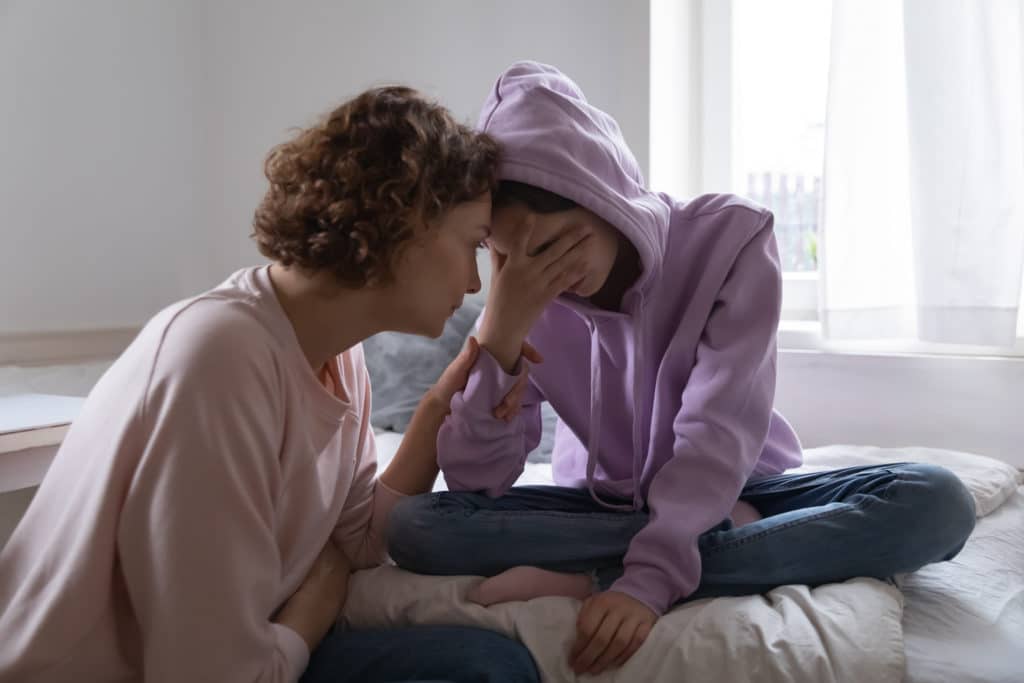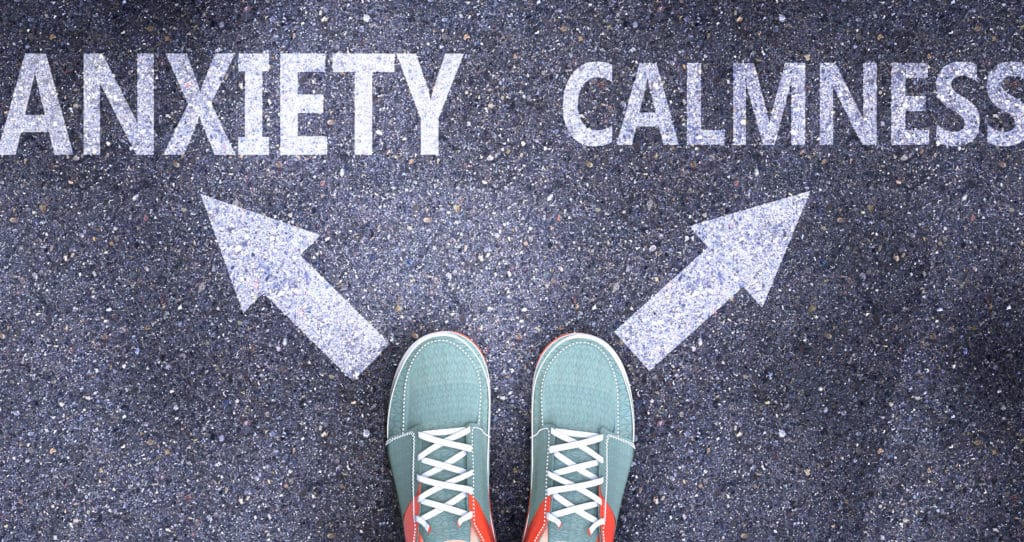Anxiety – Jennifer Oaten

All young people and adults experience different emotions throughout their lives: anger, sadness, joy, nervousness, and anxiety. These are all very normal emotions that are part of being human and surviving in our world.
There are many times in our lives when we may feel nervous, uncomfortable or anxious. For our students, this may be starting a new school, their first exams, an oral presentation, attending a social or starting their first job. Every child is different in how they respond to these situations.
People react differently to situations, some more intensely than others. Some people can control these feelings, while others struggle.
“Anxiety is part of our survival instinct. When we are faced with a threatening situation, our brains and bodies respond by kicking into safety mode. Our adrenalin starts pumping, helping us get ready to escape the danger.”
https://healthyfamilies.beyondblue.org.au/
What is normal anxiety, and what is not?
Some level of anxiety is a normal part of life and growing up. But if it stays for a long time, it could be more serious.
When we are faced with danger, our body’s response is to release chemicals that prepare us to deal with danger. This response is designed to protect us and is common in everyday life, such as a near-miss car accident. The way we respond is known as the “flight or fight” response, which impacts your heart rate, breathing, muscle tension, sweating, and digestion. Anxiety is often viewed as a negative emotion but it is, in fact, crucial for our survival. This feeling of anxiousness is one way our bodies keep us safe from danger.
When a person suffers from an anxiety disorder, the “fight or flight” response is overactive. It may happen even when there is no real danger.
While there are many varied symptoms, some key indicators of high-level anxiety include avoidance, extreme distress, and constant repetitive thoughts and feelings, which are difficult to control.
Anxiety can happen as a response to many different events in our lives and usually passes on its own, but if it persists, it is important not to ignore it and seek professional help.
What can cause anxiety disorders?
In an article by KidsHealth, the author discusses several things that may play a role in triggering the overactive “fight or flight” response, such as:
- Genetics – individuals may inherit genes that make them prone to anxiety
- Brain chemistry – an imbalance of neurotransmitters or chemicals in the brain
- Life situations – circumstances in life such as death, illness, or violence that may be difficult to cope with
- Learned behaviours – growing up in a family where others are fearful or anxious

Advice for parents and educators
- Reassure your child that you will work together to learn about anxiety and understand how she feels and why.
- As educators and parents, we need to choose our language carefully. Some helpful phrases include: “I know you are nervous, and that’s okay. I’m going to help you get through this.” “How are you feeling about……?” rather than “Are you anxious about….?” Avoid saying ‘Stop worrying’ as it is often out of their control.
- Educators and parents need to be role models to young people, so they see and hear us managing our anxiety calmly by having a plan, getting through it a step at a time, and celebrating our achievements.
- Reduce the amount of time spent thinking and talking about a situation or event that may be causing anxiety.
- Help your daughter manage tasks or assessments by supporting her to plan, organise, and use checklists and timelines so things are not left to the last minute. A plan will help her to feel more in control.
- As parents, we need to encourage our girls to be comfortable with discomfort when things are challenging. Help them understand others may also be feeling nervous. Encourage them to give it a go, to be brave.
- Finding out what they are specifically anxious about will allow you to put things into place to minimise the trigger. Taking them away from, or avoiding, the situation is not always helpful.
- Encourage positive thinking. It is difficult to eliminate anxiety, but if we encourage our girls to manage it and have strategies to put in place it limits the cycle of anxiety.
- Seek help for ongoing issues you have concerns with.

At Santa Maria College, we continue to implement our Mental Health Strategy and raise awareness of issues such as anxiety that affects many young lives. Our students are passionate about encouraging conversations around mental health. The student-led activities during Health Week and on RUOK Day, led by our Wellbeing Captain Evie McCormack were a great way to raise awareness and encourage mental health conversations about anxiety.
A FREE webinar by author Karen Young, Strengthening Adolescents Against Anxiety, will be held on Tuesday 21 September, for Santa Maria College parents. To register, click HERE
Anxiety is a challenge facing parents and educators, but if we all develop our understanding and work in partnership, we can support all our students to thrive.
Further information
https://www.blackdoginstitute.org.au/resources-support/anxiety/
https://kidshelpline.com.au/parents/issues/anxiety-kids-and-teens
https://healthyfamilies.beyondblue.org.au/age-6-12/mental-health-conditions-in-children/anxiety
https://childmind.org/article/what-to-do-and-not-do-when-children-are-anxious/

Exploring the Artistic Universe of Isabelle de Kleine (2011)
From childhood, Isabelle de Kleine’s talent flourished, guided by the supportive Art department into the renowned artist she is today.

What A Term! So Many Opportunities – Jennifer Oaten
As I look back on the past nine weeks, I am so grateful for who we are as a community and what we have achieved. Through the dedication of our staff and the enthusiasm of our students, we have established new connections, immersed ourselves in opportunities and worked through challenges.

From the President: April 2024
President Gemma Varone, welcomes you to the April edition of the OGA Blog.
- Featured, MentalHealthStrategy
Author: Santa Maria College
Santa Maria College is a vibrant girls school with a growing local presence and reputation. Our Mission is to educate young Mercy women who act with courage and compassion to enrich our world. Santa Maria College is located in Attadale in Western Australia, 16 km from the Perth CBD. We offer a Catholic education for girls in Years 5 – 12 and have 1300 students, including 152 boarders.







